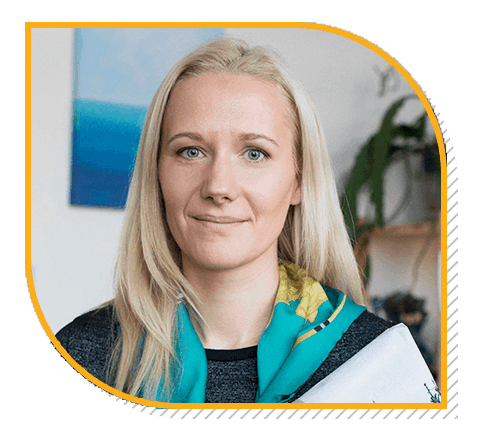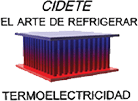The TRANSLATE project is a collaboration between multidisciplinary partners across Europe including the University College of Cork (Ireland), Tyndall National Institute (Ireland), TU Darmstadt (Germany), University of Latvia (Latvia), Cidete (Spain), and UCC Academy (Ireland).
In this article we introduce our partners from University of Latvia (UL), which includes research groups from the Institute of Chemical Physics (UL ICP) and the Institute of Solid State Physics (UL ISSP).
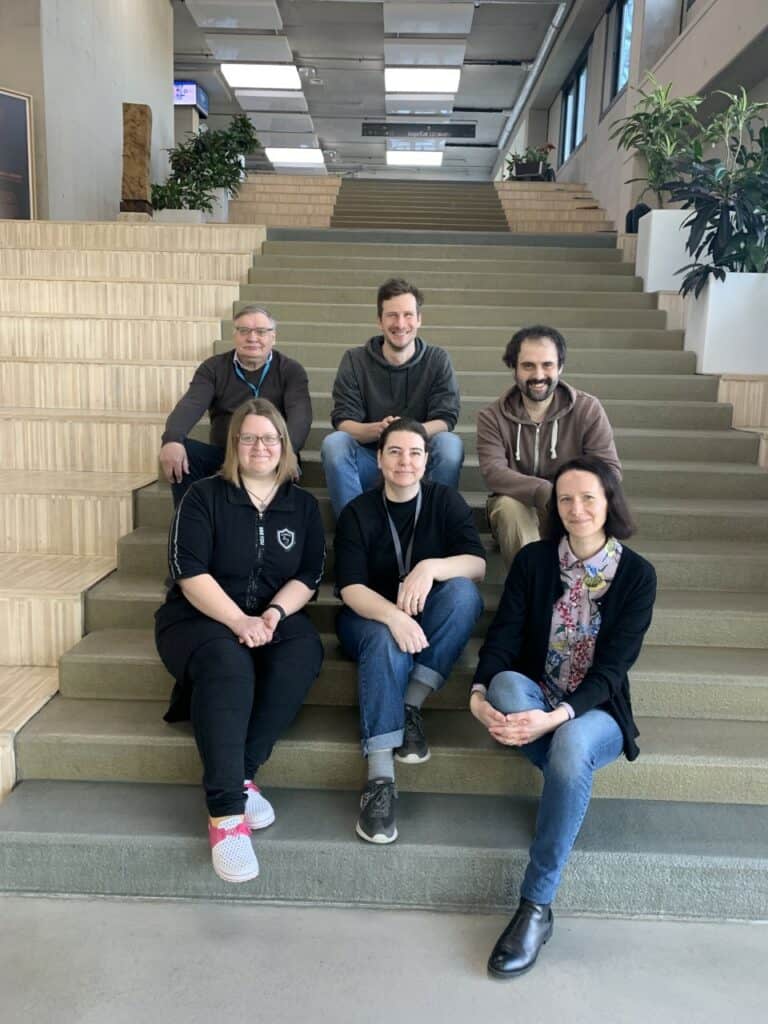
The nanotechnology group of the UL ICP, led by Prof. Donats Erts, works in the field of nanoscience. UL ICP has a wide range of expertise, including the synthesis and fabrication of nanostructured materials, and the investigation of their structure, properties, and potential applications. Application areas include, but are not limited to, lithium and sodium ion batteries, thermoelectrics, sensors, and nanoelectronics.
The group of the UL ISSP is led by Dr. Gints Kucinskis and is working in the field of research of materials for lithium and sodium ion batteries. The project team has a wide range of experience in the synthesis of battery materials, electrochemical characterisation, electrode formulation, and the development of electrochemical methods and techniques in general.
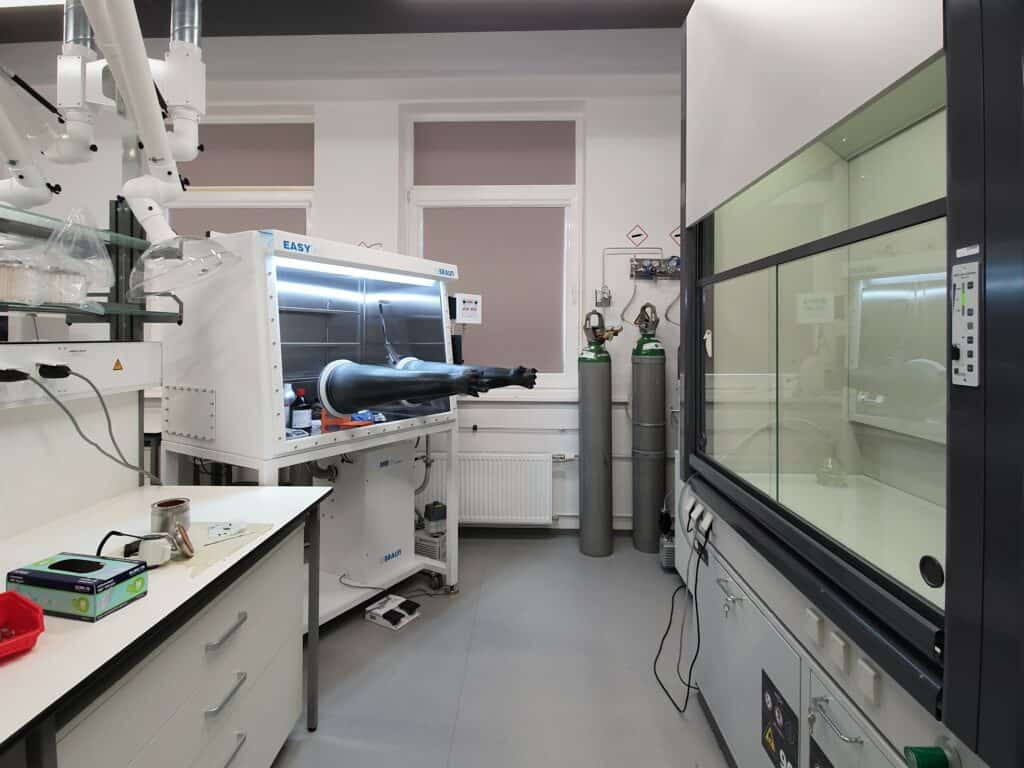
Role in TRANSLATE
For the TRANSLATE project, UL researchers will use their expertise in the formation of nanoporous membranes to experimentally validate the theoretical models for optimising parameters for energy harvesting via nanofluidic channels, developed by Technische Universität Darmstadt (TUD). UL will work closely with University College Cork (UCC) researchers to fabricate nanoporous membranes filled with electrolyte for thermovoltage generation. UL will also provide materials and perform structural analysis, as well as conducting the required electrical and thermoelectrical measurements.
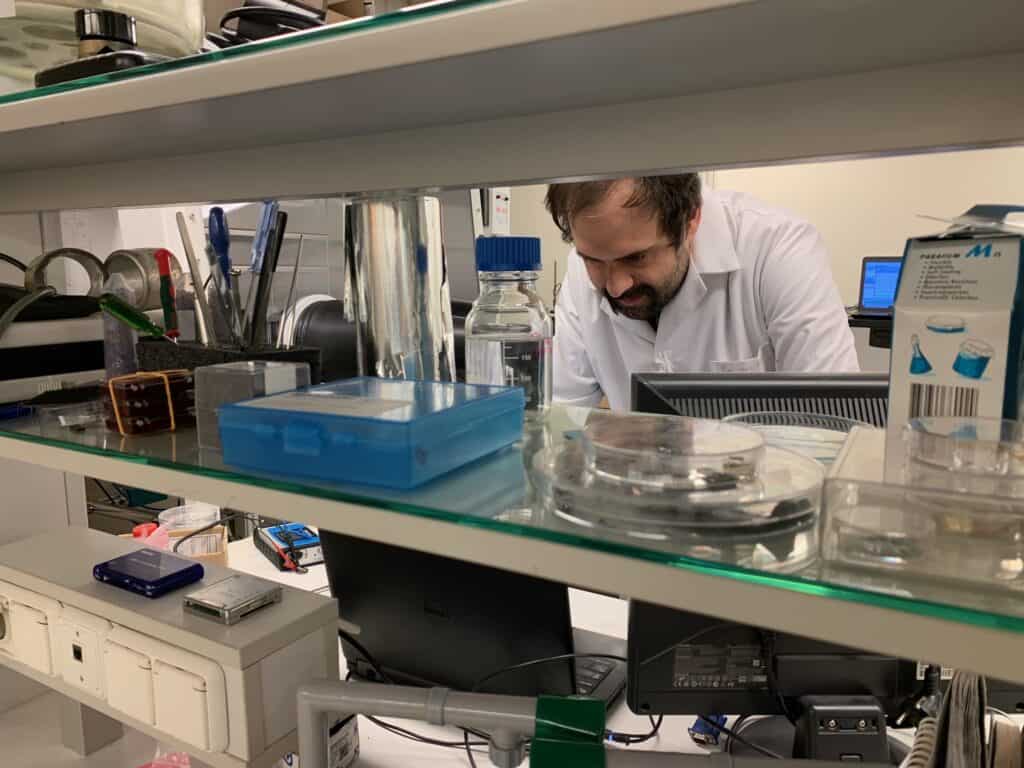
UL will lead Work Package 3 (WP3), which is the “Development of Na ion intercalative energy harvester battery cell”. The main objectives of this WP are the development and fabrication of electrode materials, determination of the optimal electrolyte composition, preparation of intercalation-based battery-like test cells and finally, characterisation and benchmarking of nanofluidic battery-like storage cells.
UL’s team members on the project include:
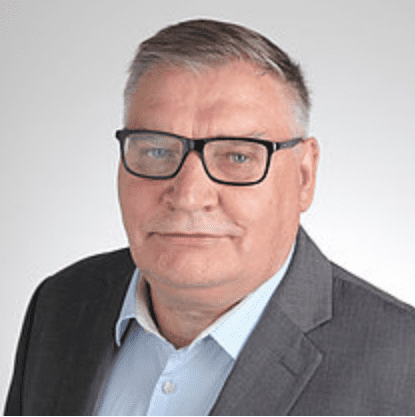
Prof. Donāts Erts is the Work Package 3 leader of the TRANSLATE project. He is a full member of the Latvian Academy of Science, a Member of Senate of the Latvian Academy of Science, and a Member of Senate of UL.
Prof. Erts became a Candidate of Chemical Sciences in the Institute of Inorganic Chemistry of the Academy of Science of Latvian SSR (USSR) in 1985 (in 1992 this scientific degree was equalled to Dr. Chem.). From 1992 until 2006, Prof. Erts has been a visiting researcher at the Chalmers University of Technology (Sweden), Bristol University (UK), Tartu University (Estonia), and UCC (Ireland). Prof. Erts has led the UL ICP for many years as a director, and now is the deputy director of the institute.
Prof. Erts has been involved extensively with different collaboration projects throughout Europe. He has been participating in numerous EU funded projects, and currently is the coordinator of the Horizon 2020 RISE project Canbiose and a group leader of the FET program project HiTIMe.
In research, Prof. Erts has been mainly focusing on the synthesis and fabrication of nanostructures, investigation of their physical and chemical properties, and the application of these materials (nanowires, nanotubes, graphene, thin films).
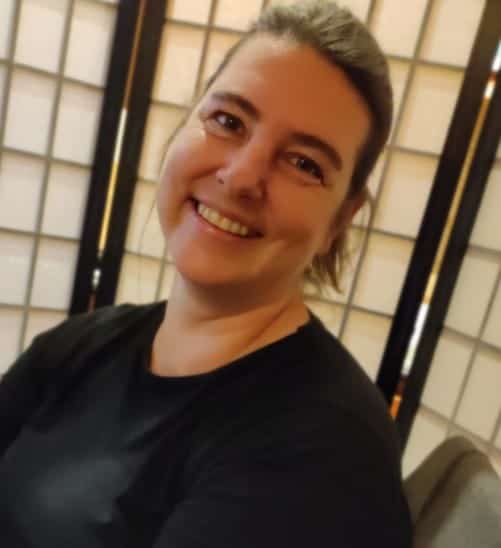
Dr. Jana Andžāne has obtained a PhD in Physics at UL in 2012, and she is currently a senior researcher at the UL ICP. Dr. Andžāne has been an active researcher for 15 years. She has participated in several EU funded projects, and is also an experienced evaluator of the Horizon 2020 and the ERANET projects and project proposals. Dr. Andžāne has an expertise in the synthesis of 1D and 2D nanostructures, especially thermoelectric and topologic insulator materials – designing and conducting research in the laboratory, focusing on the measurements of TE properties and scientific interpretation of experimental data.
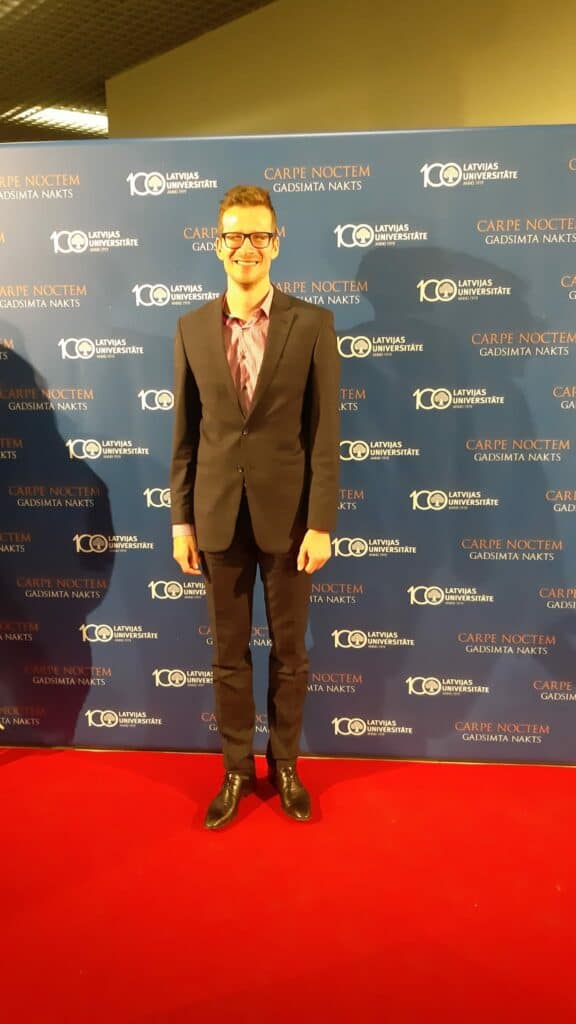
Dr. Raimonds Meija has obtained a PhD in Physics at UL in 2019. He is a senior researcher at the UL ICP and also an Assistant Prof. at the Department of Physics, Faculty of Medicine of the Riga Stradins University. Dr. Meija has been active in research for more than 10 years and has gained experience also as a visiting researcher at the Chalmers University of Technology in Sweden. He focuses on the research of measurement of physical properties of nanostructures as well as their applications for electronic components, sensors, and energy storage. His main tasks are designing and conducting research in the laboratory, and also in scientific interpretation of experimental data.
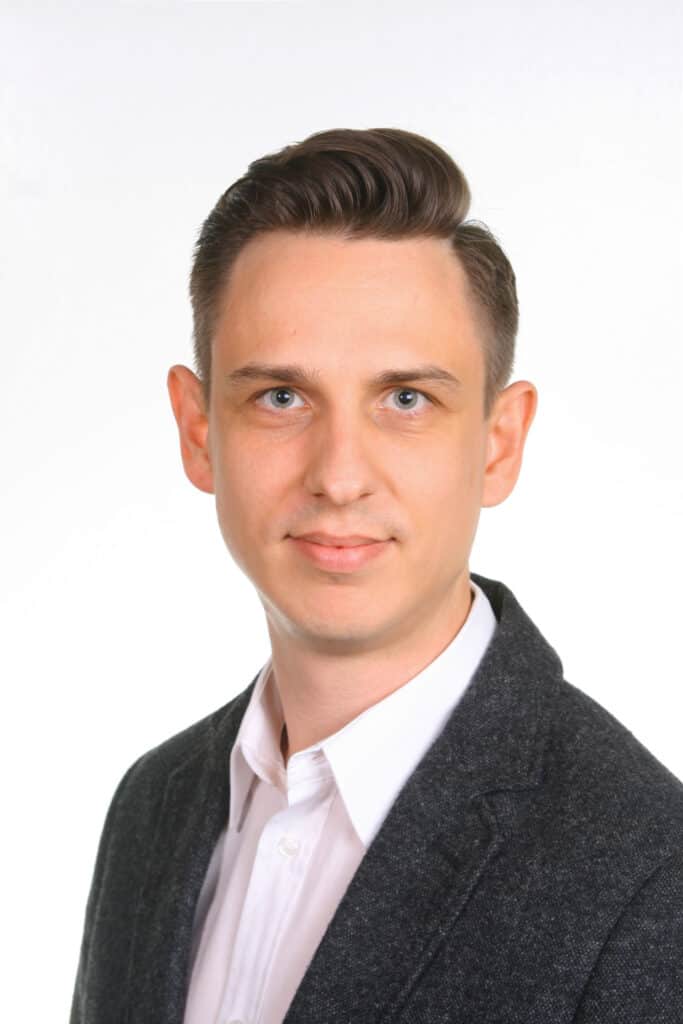
Dr. Gints Kučinskis has obtained a PhD in Physics at UL in 2015. Dr. Kučinskis has been a researcher for more than 10 years. His ability to complete a PhD program in three years and his post-doctoral position at the Max Planck Institute for Solid State Research (Germany) under supervision of Prof. J. Maier has allowed him to become one of the youngest heads of a laboratory in the UL ISSP. Dr. Kučinskis is leading a group for Sodium (Na) and Lithium (Li) battery electrode research using UL’s state-of-the-art facilities, while still being an active experimentalist.
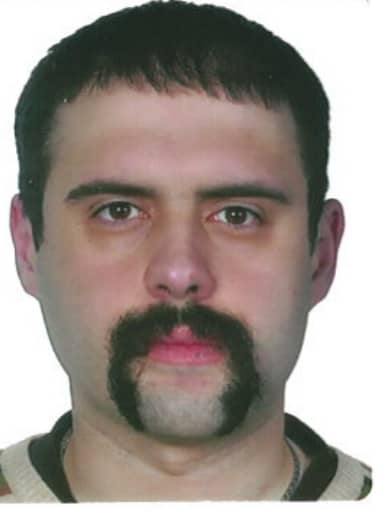
Valerii Malyshev is currently a researcher at the UL ICP. He was a PhD student at the Institute of Physical Chemistry of the Polish Academy of Sciences, where his PhD project was “Electrochemically deposited film of molecularly imprinted polymers as recognition layers for determination of selected biomarkers of chronic diseases”. V. Malyshev has obtained his Master’s degree from the Ukrainian State University of Chemical Technology (Dnipro, Ukraine) in 2009. His main specialization is electrochemistry, and he is particularly interested in such topics as inorganic electrosynthesis, functional materials for rechargeable batteries, recycling of chemical wastes, and functional materials for chemo sensors.
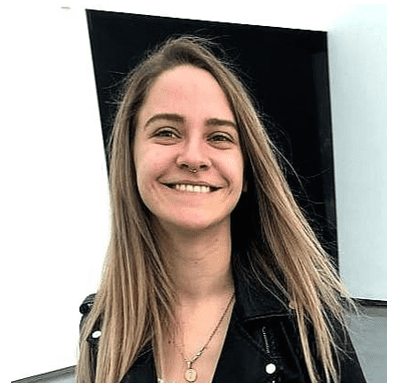
Ināra Ņesterova is scheduled to obtain her Master’s degree in chemistry from UL in the summer of 2022, Ināra has 3 years of experience in research of materials for Li and Na-ion batteries. Her focus lies on developing materials for Na-ion batteries and characterizing their electrochemical properties. She is passionate about driving a sustainable future through development of green energy harvesting and storage technologies.
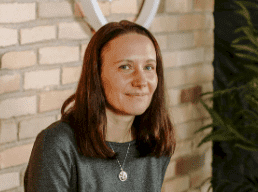
Elīna Kerre obtained a Bachelor of Communication Science from Riga Stradins university (Latvia) in 2003. She has worked as a journalist, editor, and producer in different media outlets in Latvia (360tv, Diena, SestDiena, etc.), and has obtained experience in project management in different non governmental organisations. She works as an assistant to the project manager with the UL ICP.
This article was created by the combined efforts of Elīna Kerre, Prof. Donāts Erts, Dr. Jana Andžāne, Dr. Raimonds Meija and Dr. Gints Kučinskis.


